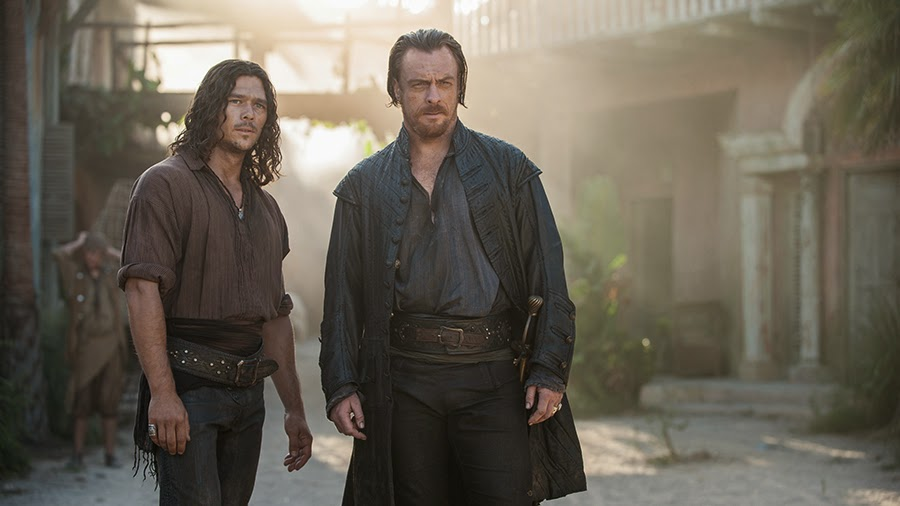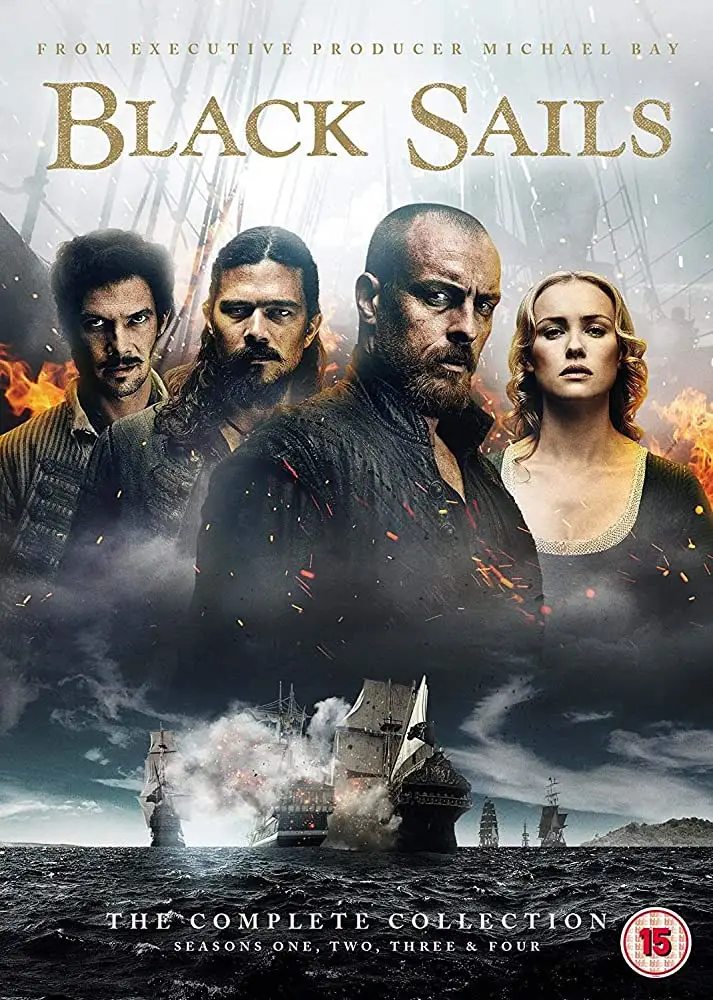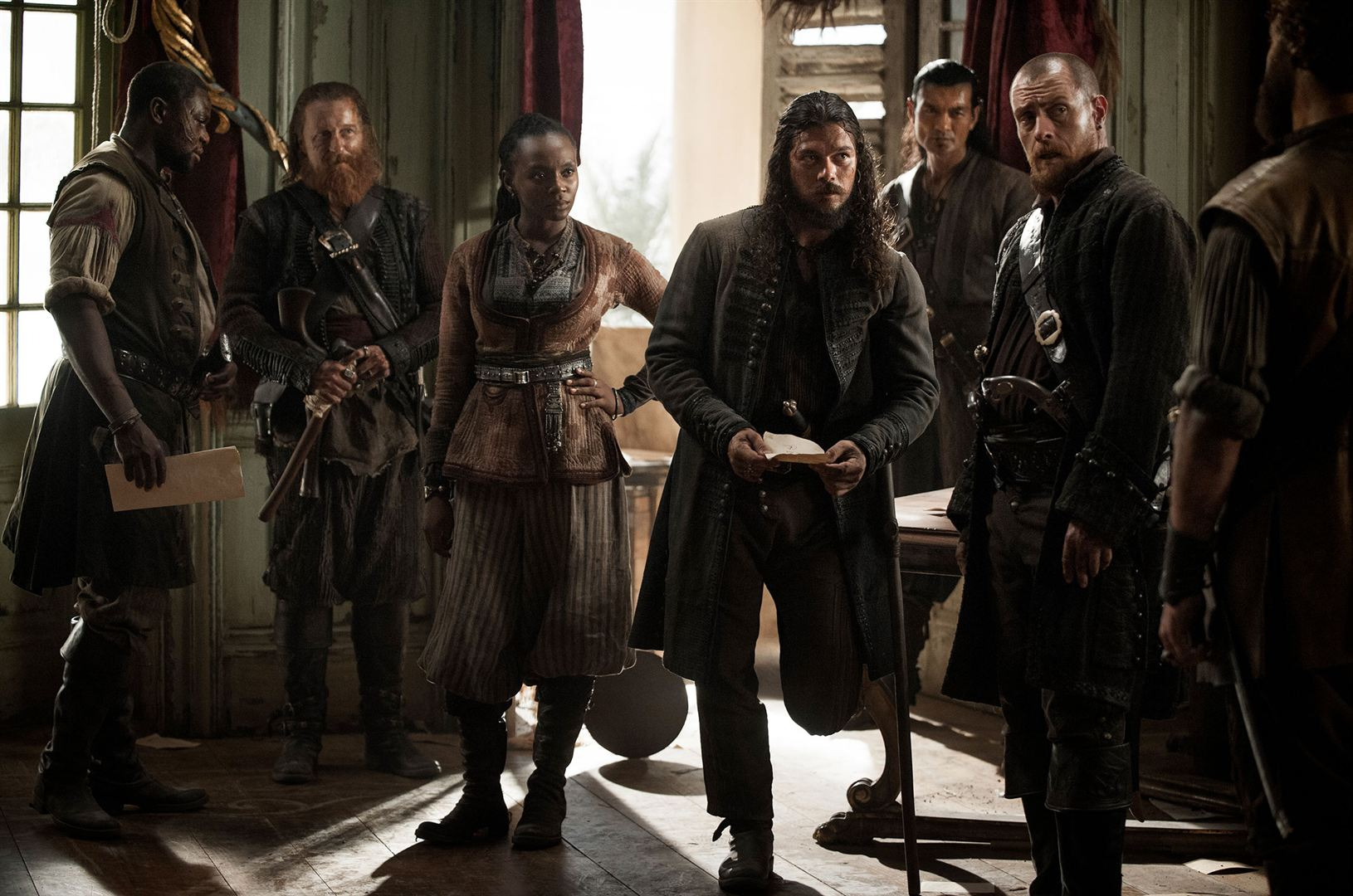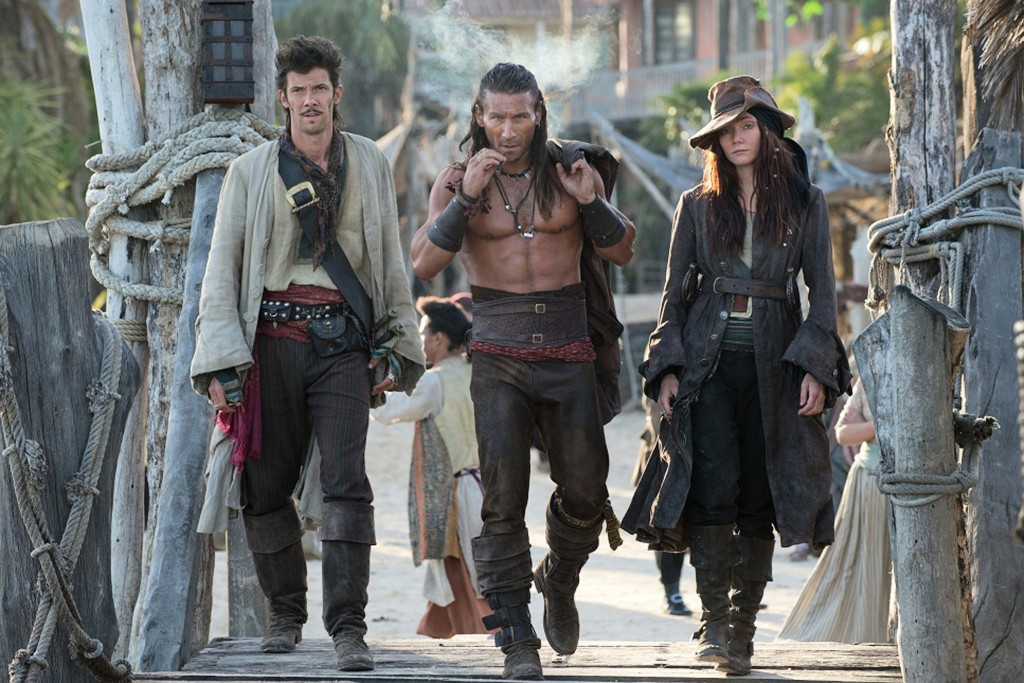Black Sails is a series that spanned four seasons between 2014 and 2017 and it does not seem to have had, in my opinion, the great recognition it deserves.

There are two main reasons for why it is a great series that everyone should see: on the one, the universal and timeless themes of the search for power and what it does to those who seek it, whether it’s power for dominance or power for liberty, loyalty and betrayal, forgiveness or revenge and resentment, how does one forge his own identity with his decisions and how narratives form identities of who one is and who other people are…
"Civilization needs its monsters", Flint says.
And he, captain Flint, and John Silver, these two characters and the complex relationship between them is the other main reason.
Now, why it seems to me (I’d like to be wrong) that it wasn’t a very popular series despite such a great series having run for four seasons? Maybe there was a bad marketing campaign, maybe the public that would watch a story like this was already taken by other series; although I suspect that both these things are true to some extent, I suspect that the key factor was that season one, while quite good, doesn’t strike out as much of a special series (in retrospective, it might have helped if the first chapter of the second season had been the last of the first season).

Black Sails functions as a prequel to the story by Robert Louis Stevenson’s Treasure Island. I had not read the book before seeing the series, though I had read as a kid a resumed and adapted version, as well as seen a miniseries based on the book, and after reading Treasure Island I can say that it’s mostly irrelevant whether you’ve read it or not except that, if you have, you know that three characters are not supposed to die in the timeframe of the series, with Black Sails beginning a couple decades before the events of Treasure Island, starred by Captain James Flint and John not yet long Silver.
The prologue words that appear in the first chapter are a good description of the current situation for the pirates:
In 1715 West Indies, the pirates of New Providence Island threaten maritime trade in the region. The laws of every civilized nation declare them hostis humani generis, enemies of all mankind. In response, the pirates adhere to a doctrine of their own....war against the world.
These words will be revalidated later in the same chapter by Flint, speaking to Billy Bones:
When a king brands us pirates he doesn't mean to make us adversaries; he doesn't mean to make us criminals. He means to make us monsters, for that's the only way his god fearing tax paying subjects can make sense of men who keep what is theirs and fears no one.
So, it would seem that we are in front of a sort of common pirate theme: people who reject or have been rejected by civilization join together to live their own lives in a democratic way where everyone is equal, stealing from the society that rejected them or wouldn’t accept them, or, like Charles Vane, a former slave, because they are not willing to submit themselves to what they deem a yoke:
This men convinced you that they speak for you. That the power you've given them is used in your interests. That the prisoner before you is your enemy and they your friends. For those of you who live to see tomorrow... know that you had a choice to see the truth and you let yourselves be convinced otherwise.
And, in case it needs a clarification: that things are done democratically inside each crew and that every man’s vote counts as one, doesn’t mean that things would be resolved by kind words or peaceful retribution: in fact, thieving is punishable by death, as is the false accusation of one, and the options are trial or, if you know the judge will be against you, swords; and Flint uses this to get rid of his rival for captaincy and to buy time to recover the stolen schedule of the Spanish largest treasure Galleon L’Urca de Lima.
And things in land, the town of Nassau in New Provindence Island is somewhat similar, as everyone do as they please but the Guthrie family (Richard from away, his daughter Eleanor from Nassau) has great power as it is their connections with people in civilized ports what allows the commerce of the stolen goods the pirates obtain as not stolen goods.

So, throughout season one we have the comes and goes of Captain Flint and Eleanor to obtain resources to launch their assault on the Urca de Lima while keeping things afloat in Nassau after in chapter one Richard Guthrie is deemed a fugitive from the law. For this, it is cunning schemes and fights the main thing to see in the eight episodes of season one, but because it is subtly or with little scene time that the more profound themes and exploration of deep human relationships are depicted for them to overtake or at least match in importance cunningness and fights, although one of the best scenes of the series is near the end of chapter seven, where the soundtrack Parson’s farewell sounds as Flint and Gates exchange looks when they sail for the hunt of the Urca, and it was seeing by chance this scene what got me to see the series.
However, that changes from season two onwards. In season two, of ten chapters, for little more than half of it we have flashbacks with Flint’s prior life as lieutenant of his Majesty’s Navy, beginning with his first meeting as liaison with the navy with Lord Thomas Hamilton, who has been tasked by his father (a very prominent and dangerous man of the Parliament) to bring back to the fold the rebel New Providence Island.
Hamilton and Flint have very different views on the world, the former seeing the principle, how the world should be, and Flint seeing it as it is and adapting to it, and it is precisely their divergent views, besides matching intelligences, why Thomas decides to keep him as his partner, as strange partners make the best allies, mirroring the current situation at the present where Flint and Silver join efforts fully willingly on both parts (unlike how they had been on season 1) to take the Urca treasure which now awaits in an island guarded by Spanish soldiers after the ship was dashed by a storm.
These flashbacks creates a magnificent contrast as well as explaining how Flint ends up what he is, the most feared pirate captain and yet a person worried about being seen as the villain of the story for the rest of people, and in the flashbacks there will also be the hope for the present situation incarnated in a common friend of him and Thomas at the time, everything falling together neatly, and while seasons three and four are in a way as good as season two, it is the effect of this contrasting flashbacks and how Flint attempts to go back to his original idea, with Hamilton, to save Nassau, the defining factors that makes me deem season two as the best of the series and a masterpiece of a season.
That said, I also want to give great compliment to seasons three and four: they have one of the best antagonist I have ever seen, governor Woodes Rogers, another character inspired in a real person, and who wrote, and it is mentioned a couple times in the series, a successful book, A Cruising Voyage Round the World. He is the one that will take up the fight from the side of civilization (despite sympathizing with the pirates when dealing with the insurance companies), with very little he would not do to win, including non civilized things…
So, while I have focused on the main thing for me about this series, I encourage you to see it because there are also other great things of which I have not spoken: characters with their own great personal journeys who fall neatly into the Flint and Silver’ story: Jack Rackham and Ann Bonny, Max, Eleanor Guthrie (I liked her role in seasons two and three more than it was in the others), her grandmother despite her short appearances, Blackbeard, Madi… And adding to all, music that greatly bends itself into the scenes.

And I bid farewell with some of Rackham’words:
A story is true. A story is untrue. As time extends, it matters less and less. The stories we want to believe... those are the ones that survive, despite upheaval and transition and progress. Those are the stories that shape history. And then what does it matter if it was true when it was born? It's found truth in its maturity, which if a virtue in man ought to be no less so for the things men create.
https://www.youtube.com/watch?v=7FPRzH7Nrg4